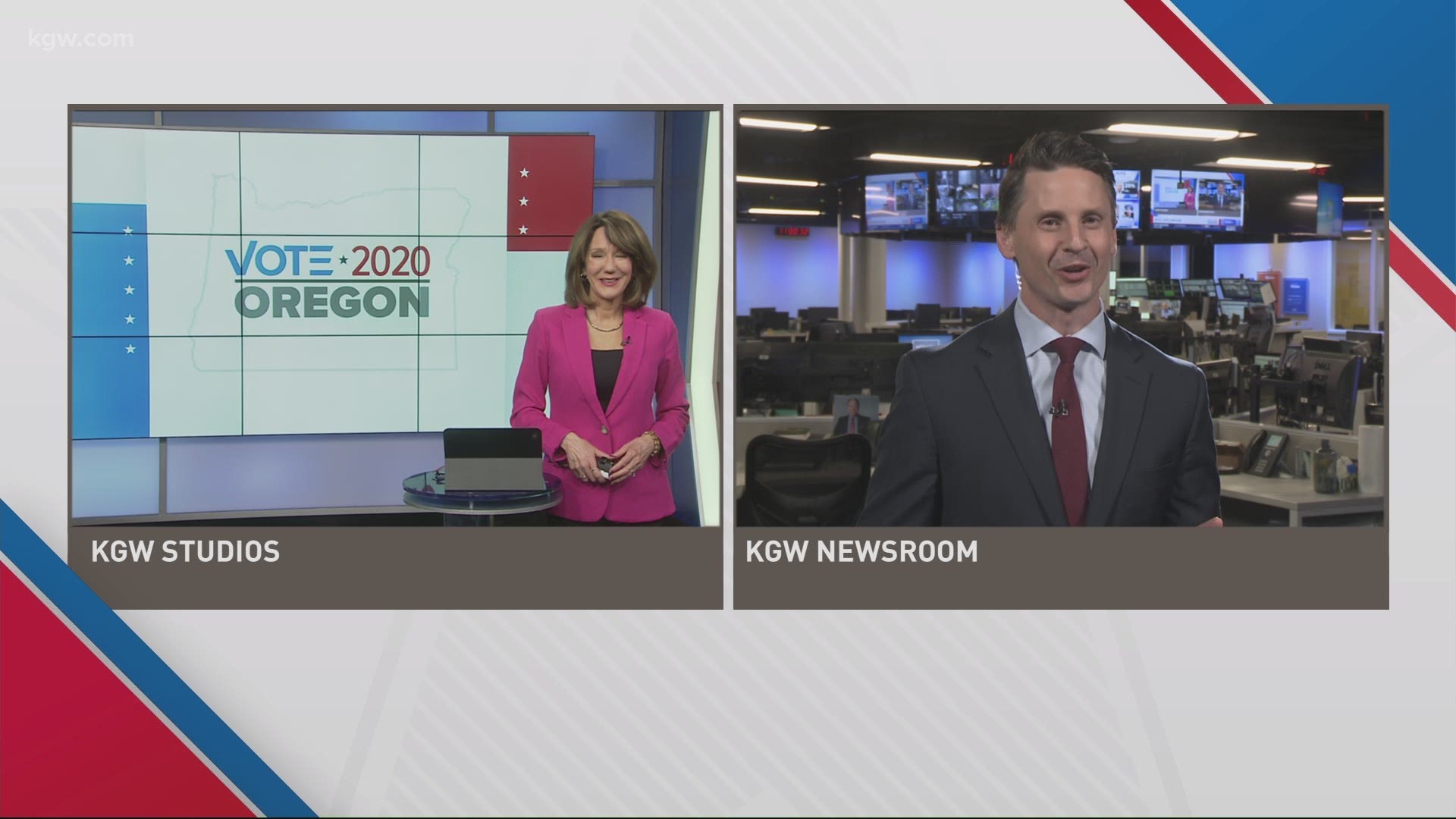PORTLAND, Ore. — Voters chose experience over newcomers and public employee unions lost a step in the 2020 Oregon primary elections, according to KGW analyst Len Bergstein.
Speaking on the #SunriseExtra newscast, Bergstein also had opinions on how the pandemic affected election outcomes and the signal Portland area voters sent by approving a tax to help the homeless.
Voters Tuesday chose longtime state legislator Mark Hass to be the Democratic nominee for Secretary of State, longtime lawmaker Cliff Bentz in the GOP race for the 2nd Congressional district, incumbent Ted Wheeler for mayor of Portland, and Carmen Rubio, with deep city hall experience, to replace Amanda Friz, Bergstein points out.
Hass defeated a strong field, led by relative newcomer Shemia Fagan, who had strong support from public employee unions. Bentz bested Knute Buehler, who had name familiarity from a failed governor's race. Another opponent, former lawmaker Jason Atkinson, comes from a strong Southern Oregon political family.
RELATED: Hass wins contested Democratic primary for Oregon's Secretary of State; Thatcher wins GOP race
While Wheeler had serious political issues from his first four years as mayor, Bergstein said the mayor did a good job recently of handling the COVID-19 crisis. He thinks people chose Wheeler, in part, because they want stability in crisis.
Though votes remain to be counted, Bergstein said he expects Wheeler to hold his lead over challenger Sarah Iannarone. If it does come to a November runoff, the turnout increases significantly in a general election and to predict an outcome now is difficult, he said.
Even though the race to replace Fritz drew a number of contestants, voters chose Rubio, who clearly has the most political experience, he said.
The Oregon Education Association, along with other public employee unions, came out on the short end of the election, he said.
The groups heavily supported Fagan, along with a slate of legislative candidates, and those unions "lost up and down the ticket," he pointed out.
Even if the Democrats maintain a supermajority in the legislature after the general election, the primary "didn't win them a lot of friends," Bergstein said of public employee unions.
He said voters "should pat themselves on the back" for passing the Metro measure to help the homeless. This was a chance to turn emotional opinions about homelessness into financed solutions.
Bergstein credited the regional government for crafting a measure that taxes the wealthier. Now, they must prove that money will be spent as intended, he said, and Metro has a good record of public involvement.
The pandemic also shaped election outcomes, he said.
Gone was the traditional door knock, which voters missed. Any good candidate shows their worth by meeting potential constituents face-to-face and that could not happen with the COVID-19 restrictions, he said.
The lack of that tool probably hurt Ianarrone, he said. A populist campaign is aided greatly by the candidate and supporters creating personal contacts on that doorstep, he pointed out.
The pandemic also led to campaigns and the electorate embracing technology and social media to a greater degree, especially in rural Oregon, he said.

